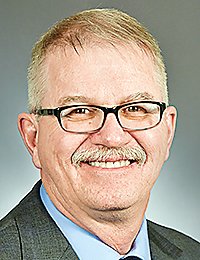Support the Timberjay by making a donation.
Bill would create relief program for borderland businesses
REGIONAL— Northland businesses affected by extended closures along the Canadian border as well as closures related to last summer’s fires, could get financial relief under legislation …
This item is available in full to subscribers.
Attention subscribers
To continue reading, you will need to either log in to your subscriber account, below, or purchase a new subscription.
Please log in to continue |
Bill would create relief program for borderland businesses
REGIONAL— Northland businesses affected by extended closures along the Canadian border as well as closures related to last summer’s fires, could get financial relief under legislation authored by District 3A Rep. Rob Ecklund, DFL-International Falls.
The bill, known as HF 2811, would create a new Canadian Border Counties Economic Relief Program, which would provide financial help to businesses adversely affected by last year’s fires in and around the Boundary Waters Canoe Area and the border closure between March 2020 and July 2021.
“In Minnesota, we have a long track record of helping out areas of our state when they experience hardship, and last year’s fires and the prolonged border closure have devastated many businesses along the Canadian border,” Ecklund said in a statement announcing the measure.
While Ecklund said he originally drafted his bill with the thought of aiding outfitters impacted by the widespread fire-related closures in the Boundary Waters last summer, he heard from many business and community leaders in the district that the closures in the wilderness at the Canadian border had impacted many other businesses as well.
Ecklund’s bill includes $15 million worth of grants for businesses in Cook, Lake, St. Louis, Koochiching, Lake of the Woods, Roseau, or Kittson counties with a documented revenue decline of at least 10 percent between 2020 and 2021. The maximum grant award is $50,000. Originally, the funding in the legislation was targeted to assist Boundary Waters area outfitters, but Ecklund worked with other business owners and civic leaders to expand the bill’s scope.
Several northern Minnesota officials and business owners spoke of their support for the measure at a hearing of the House Workforce and Business Development Finance and Policy Committee, held Feb. 16. Video of the hearing is available on the House Public Information Services YouTube channel at www.youtube.com/user/MNHouseInfo.
At the hearing, Chairman Robert Deschampe from the Grand Portage Band testified via Zoom about the impact the border closure has had on the band’s business operations, including its hotel and casino at Grand Portage, where 80-85 percent of their customer base has typically come from Canada. Deschampe estimated their gaming and hotel revenues are down about 90 percent over the past two years.
Paul Nevanen, Director of the Koochiching County Economic Development Authority, noted that a significant portion of his region’s customer base resides across the border in Canada, which has resulted in a steep decline in traffic at shops in International Falls. He cited the impact on border crossings, which fell from 398,300 in 2019 to just 80,533 in 2020. Nevanen noted that many of those who formerly crossed the border at the Falls were headed to Canada and frequently spent a night or two in the border city along the way, utilizing hotels and restaurants, which have also been significantly affected.
Eric Johnson, an International Falls business owner who delivers propane and gasoline to water-access cabin owners on Rainy Lake testified that his business has dropped over 50 percent as a result of the border closures, which have prevented many of his customers, who are Americans with cabins on the Canadian side of Rainy Lake, from accessing their properties and utilizing his services.
Ecklund’s bill appeared to have strong support in the committee, which laid it over for consideration in a future Workforce and Business Development finance bill.
Bipartisan support for the measure was expressed by District 17B Rep. Dave Baker, R-Willmar.
“We didn’t do anything like this before, but I get it. It is different when you’re bordering another country, and they have been extremely limiting on opening up to traveling,” Baker said. “When a business closes up there, you lose jobs, you lose people in the school districts, you lose housing, you lose so many other things that don’t get made up like in other communities. It is a very unique situation up there and I want to support this.”
Baker’s lone concern was whether or not 2020 was the right year to use as a baseline for determining losses. As someone in the hospitality business, Baker said his own experience was that 2021 was better than 2020. He suggested that Ecklund and his staff take a deeper look at the numbers to see if using pre-pandemic receipts as a baseline would better provide for the needs that should be addressed, and Ecklund agreed to do so.
Whether the measure attracts support in the state Senate remains to be seen. Third District Sen. Tom Bakk, I-Cook, said he thinks changes to the measure, which broadened its initial focus on wilderness outfitters, should improve its chances. At the same time, Bakk said many resorts and tourist-related businesses have done extremely well during the pandemic. He noted that wilderness outfitters had a banner year in 2020 and were doing very well in 2021, at least until the wilderness closures. “For the outfitting community, they may have a tough sell at the Legislature,” said Bakk. “The competition for state general fund dollars is always pretty intense.”
If ultimately enacted, the bill would go into effect on July 1, but a period of time would be necessary to develop the operational capacity and guidelines for the program within the Department of Employment and Economic Development before they would be ready to start accepting applications for assistance.






